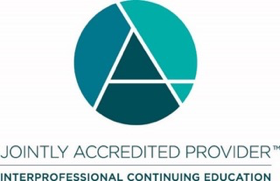When Food is Medicine, What is the Physician’s Role?
October 7, 2024
9:00 am – 7:00 pm ETBaltimore, MD
Renaissance Baltimore Harborplace HotelA convening only for Chief Medical Officers, Chief Health Officers, and Corporate Medical Directors.

- The HERO Fall Think Tank on “Lifestyle, Environmental, and Pharmacological Interventions for Obesity” intends to explore the benefits and drawbacks of GLP-1s and similar drugs and delve into the opportunities to more systematically integrate lifestyle as medicine into benefit strategies. (9:00 AM – 12:00 PM ET)
- The CMO Summit on “When Food is Medicine, What is the Physician’s Role?” will continue the discussion on how to integrate FIM interventions into the clinical workflow and the organizational benefits structure. (3:00 – 6:00 PM ET)
We have scheduled these two convenings to occur on Monday, October 7th, for an integrated day of learning and networking. This complimentary meeting will also include the opening session at HERO Forum24, a networking lunch, and reception. See the schedule for the day here.
These meetings are offered in conjunction with HERO Forum24. If you would like to attend days 2 and 3 of Forum24, we are offering a 40% discount on registration. Please complete the registration form below, indicating the sessions you plan to attend.
Joint Accreditation Statement
 In support of improving patient care, this activity has been planned and implemented by Amedco LLC and Society for Adolescent Health and Medicine (SAHM). Amedco LLC is jointly accredited by the Accreditation Council for Continuing Medical Education (ACCME), the Accreditation Council for Pharmacy Education (ACPE), and the American Nurses Credentialing Center (ANCC), to provide continuing education for the healthcare team.
In support of improving patient care, this activity has been planned and implemented by Amedco LLC and Society for Adolescent Health and Medicine (SAHM). Amedco LLC is jointly accredited by the Accreditation Council for Continuing Medical Education (ACCME), the Accreditation Council for Pharmacy Education (ACPE), and the American Nurses Credentialing Center (ANCC), to provide continuing education for the healthcare team.
Amedco Joint Accreditation #4008163.
Professions in scope for this activity are listed below.
Physicians
Amedco LLC designates this live activity for a maximum of 5.25 AMA PRA Category 1 CreditsTM. Physicians should claim only the credit commensurate with the extent of their participation in the activity.
When Food is Medicine, What is the Physician’s Role?
There is a burgeoning interest in and research focused on Food is Medicine. The American Heart Association’s Presidential Advisory defines Food Is Medicine (FIM) as, “the provision of healthy food resources to prevent, manage, or treat specific clinical conditions in coordination with the health care sector.”1 Medically-tailored groceries, medically-tailored meals, and produce prescriptions are examples of this approach.2
Thomas et al.3 (See Figure 1 from their article) reported recently that “integrating FIM into lifestyle, medical, and digital interventions for obesity can help advance health equity, optimize the current positive momentum of obesity treatments, enhance already-established lifestyle and self-management solutions, and potentially reduce high costs of care for patients and payers as well as protect future generations from chronic disease.”
Figure 1.3
 Currently, however, clinicians receive insufficient training on implementing FIM.1,2 Many questions remain about how clinicians can seamlessly integrate sustainable FIM interventions into their workflow, what other multidisciplinary team members need to be involved to ensure its success, and how FIM initiatives can be supported by other organizations.
Currently, however, clinicians receive insufficient training on implementing FIM.1,2 Many questions remain about how clinicians can seamlessly integrate sustainable FIM interventions into their workflow, what other multidisciplinary team members need to be involved to ensure its success, and how FIM initiatives can be supported by other organizations.
This CMO Summit will explore:
- Existing evidence to support the effectiveness of FIM interventions1 and how FIM interventions can be used as an adjunct to traditional medical and surgical interventions
- Pathways to integrate FIM into clinical care models4
- Potential adjunctive workforce interventions to support FIM (e.g., Teaching Kitchens)5
- How shifting payment models may support FIM
- Partnerships and collaborations that can be created with health care payers, food retailers, community programs, and technology companies to facilitate the implementation of FIM interventions
Learning Objectives
At the end of this session, participants will be able to:
- Define Food is Medicine and provide three examples of it
- Explain how FIM can improve clinical outcomes
- List at least two options for facilitating the integration of FIM into clinical practice
Citations
- Volpp KG, Berkowitz SA, Sharma SV, et al. Food Is Medicine: A Presidential Advisory From the American Heart Association. Circulation. 2023;148(18):1417-1439. doi:10.1161/CIR.0000000000001182
- Downer S, Berkowitz SA, Harlan TS, Olstad DL, Mozaffarian D. Food is medicine: actions to integrate food and nutrition into healthcare. BMJ. Published online June 29, 2020:m2482. doi:10.1136/bmj.m2482
- Thomas O, Badaracco C, Alexander LC. Food: A Vital Ingredient In Transforming Obesity Care. Published online March 19, 2024. doi:10.1377/forefront.20240315.834161
- Frist B. The Surest And Safest Way To Maximize Your Health: Food As Medicine. Forbes. Published online March 11, 2024. Accessed April 12, 2024. https://www.forbes.com/sites/billfrist/2024/03/11/the-surest-and-safest-way-to-maximize-your-health-food-as-medicine/amp/
- Bergquist SH, Wang D, Fall R, et al. Effect of the Emory Healthy Kitchen Collaborative on Employee Health Habits and Body Weight: A 12-Month Workplace Wellness Trial. Nutrients. 2024;16(4):517. doi:10.3390/nu16040517
2024 CMO Summit Registration
"*" indicates required fields
